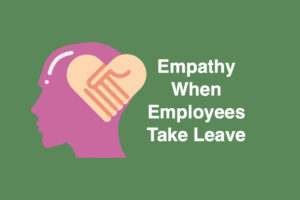Contents
- 1 Time Off Work For Depression
- 2 How Much Time Off Is Available To An Employee With Depression?
- 3 How Should Employer React If Employee Needs Time Off?
- 4 Importance Of Break For Employee With Depression
- 5 Approval For Time Off Work
- 6 Benefits Of Time Away From Work
- 7 Demerits Of Time Off Work For Employees
- 8 How Employees Can Take Time Away From Work Without Jeopardizing Work?
- 9 How Employers Can Help Employees With Depression?
- 10 Conclusion
Time Off Work For Depression

The time an employee can take off work depends on the severity of the depression and how it’s affecting their work. It’s important for an employer to be supportive and understanding. An employee shouldn’t feel like they’re judged or shamed if they need to take time off for this illness. If work becomes too much, the sufferer may not be able to perform as well as usual. It can take a long time for someone with depression to recover from this illness and get back to normal life. Time off work can help them regain strength and focus. Even after a person returns to work they will need time off occasionally to recuperate.
Generally speaking, employees are entitled to sick leave if they’re ill and unable to work. The amount of time off will depend on the severity of their condition. Generally speaking, employers should be supportive towards employees who suffer from depression and judge them less harshly. They should be understanding that those with depression need time off now and then to recuperate. As it can take a long time for sufferers to recover fully.
How Much Time Off Is Available To An Employee With Depression?

There are time periods that an employer has to define. One is the time period that the employee may take for time off. The time frame can be hourly, daily, weekly, or monthly. Another time frame is what type of time they can use for time off. Generally speaking, employers should be supportive towards employees who suffer from depression and judge them less harshly. They should be understanding that those with depression need time off now and then to recuperate. As it can take a long time for sufferers to recover fully.
Another time frame is when the time off will start and end. Most time off starts at either midnight or noon while some time off ends at different times. Lastly, there’s a time frame for when they should return to work. If the employee misses their time frame to return to work, then it can be considered as an unexcused absence. Their time frame to return to work depends on how long it takes for them to recover from depression.
How Should Employer React If Employee Needs Time Off?

Their employer should react in a supportive way, not judging or shamed them. They should be understanding that those with depression need time off now and then to recuperate. As it can take a long time for sufferers to recover fully. How long time off depends on the severity and how it’s affecting them. Generally, with management and time to recover, those with depression should be able to return to work.
How long time off depends on the severity and how it’s affecting them. Generally, with management and time to recover, those with depression should be able to return to work.
Importance Of Break For Employee With Depression

Time away from work can help people with depression regain strength and focus. It is important to take time off work for those who have depression so they can eat properly, sleep, and exercise. If time off is never given to the person, their condition will worsen and will make it harder for them to regain focus. Even if time off slows down productivity at work or takes time away from other people’s schedules, employers should be understanding. Having time off for those with depression will help them get better and come back to work stronger than before.
Approval For Time Off Work
Time off needs to be approved by an employer in some time frames. For example, time taken for a medical procedure or treatment would need approval before time off is used. The time away from work needed should be best explained by the employee and their doctor if time off is needed. It’s best for employers and employees to reach a time frame and time away from work that they can both agree on. If time off is without approval, it will be better if the employee takes time away from work in hours or days that don’t cause disruptions at their workplace.
Benefits Of Time Away From Work

Employees who are taking time away from work due to depression may have positive effects in the long-term even if time off work time is shorter. The effects in the time when time off is taken for time with depression are varied, but the time away is necessary for anyone who does not recover. Some of the benefits that can be seen are an improved mood, reduced stress, less pain, and better functioning in social life.
It’s important that time off be given to those with depression because it can help them get better and return to work stronger than before. It’s also important for employers to understand why time needs to be taken for time off work. If time off or time away from work is not approved, time away may need to be taken without it. Time off for time with depression will affect time off in the future if time is shorter, but time away can help people improve their mood and better function in social life.
Demerits Of Time Off Work For Employees
The time away from work can affect an employee’s time to get time off at a later date. If the time period is longer, it will be harder for the sufferer of depression to get time off later without thinking about how much time was taken previously. It may make the person feel unworthy or undeserving of time away if they have been off work for a long time. If time off is short, it can be managed along with any progress that may be made.
How Employees Can Take Time Away From Work Without Jeopardizing Work?
This can be done by taking a break from time work here and there or through a more formal leave of absence. If a physician approves time away from work due to a medical condition. It doesn’t need approval by an employer again.
Take Small Breaks
Taking breaks from work isn’t going to jeopardize your job or income. You can start small by cutting down on the hours you’re working each day. It will give your employer less reason to worry about losing you as an employee. If they know you’ll still be coming in every day. You can always free up extra time during time off-work time depression by taking some time away for yourself on time weekends. This is similar to how you may take free time during your lunch break. Only you’re dedicating the time to more important things like completing errands and getting chores done around the house.
Freeing up extra time through a leave of absence can be beneficial for the sufferer of time depression to get time off work. This is done by providing an employer or supervisor with a doctor’s note that states that time away from time work is needed because of time with time depression. This will give you the opportunity to complete your other daily tasks without worrying about work.
Get Help From Supervisor

When employers freely allow the employee with depression to get time off. It can help them feel better in the long term even if they take less time away from work. If you need help getting your employer or supervisor to support you when taking time away from work for a condition like depression. You should reach out to them and a mental health expert who specializes in treating depression. They can help you get out of this mental illness and time off work with your employer. So you can completely take rest and perform other daily tasks without worrying about time work.
Requesting time off is important for those who need it for a condition like depression. It’s important for employers to understand the benefits of allowing time off.
How Employers Can Help Employees With Depression?
Employers can help employees with depression feel supported at work, not judged, shamed, or stigmatized by increasing awareness of mental health from a company-wide level.
Provide Helpline Number
Some employers have taken steps to increase their understanding of those with depression. They have done this by establishing a helpline that offers emotional support and can direct callers employees. They have also implemented broader anti-discrimination policies that prohibit the discrimination of those on the grounds of mental health.
For more information on how employers can provide support to those who have depression. These practices often include educating managers on how they should be sensitive to the ways in which a person’s condition might affect their behavior or mood and making reasonable accommodations when possible.
Be Understanding
Employees with depression should feel comfortable opening up to a supervisor if they need time off from work. Whether it’s because of the depressive episode itself or because of side effects like fatigue. A good manager will be understanding and willing to work with an employee through any difficulties that may arise because of the depressive episode. They should also be willing to support their employee’s requests for time away from work.
Review Company’s Leave Policies
An employee who needs time away from work due to depression can be helped by having an understanding employer and letting them know what they need. Good corporate policies for supporting those with mental health conditions include education. Especially on how managers should be sensitive to the specific ways in which a person’s mental illness might affect their behavior or mood. Finally, employees with depression should feel comfortable opening up to a supervisor. If they need time off from work because of the depressive episode itself or because of fatigue.
Conclusion
How long an employee can be off work with depression will vary from person to person. Employers should take an active role in understanding mental health, such as by establishing a helpline and offering anti-discrimination policies. Finally, employees with depression should feel comfortable opening up to their supervisors. If they need time off from work. Whether it’s because of the depressive episode or because of fatigue.
To summarize, employees with depression who are considering taking time off work should familiarize themselves with their company’s leave policies. And be sure they have a doctor’s note that clearly states what they need in order to stay better during any future depressive episodes. They should also feel comfortable opening up to their supervisor. If they need time off from work because of the depressive episode itself or because of fatigue. Finally, managers should offer support to employees with depression. When it is requested and be understanding about any difficulties that may arise as a result of the depressive episode.
Do you want to keep your employees happy, healthy, and productive? Join our employee assistance program and get a healthier workplace.


